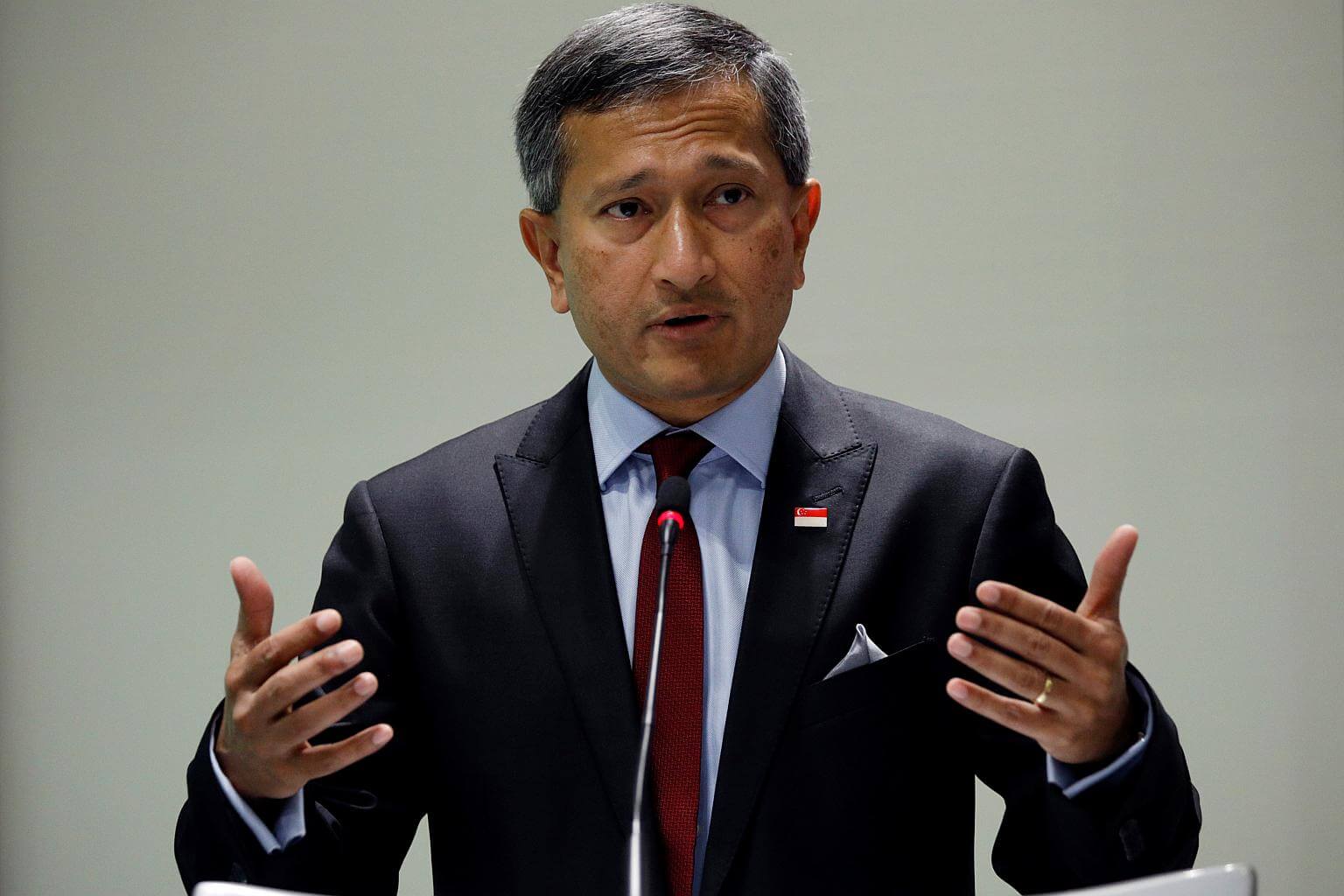Asean must continue to seek consensus but cannot do nothing on Rakhine situation: Vivian
Sign up now: Get ST's newsletters delivered to your inbox

Foreign Minister Vivian Balakrishnan speaking at a lecture titled Asean: Next 50 at the ISEAS-Yusof Ishak Institute in Singapore, on Dec 5.
PHOTO: REUTERS
SINGAPORE - It is not credible for Asean to see, say or do nothing about the humanitarian situation in Myanmar's Rakhine state, even though the crisis cannot be solved overnight, said Foreign Minister Vivian Balakrishnan on Tuesday (Dec 5).
And while there are no easy solutions, "there are real people suffering terrible injustices and they are victims of atrocities", he said, to about 200 diplomats, business leaders and academics.
"There is a humanitarian disaster. Asean has to stand for stopping the violence and stopping the violence now, and making sure humanitarian assistance actually flows," he added, speaking at a lecture event organised by the Iseas-Yusof Ishak Institute.
In his lecture titled Asean: Next 50, Dr Balakrishnan also set out Singapore's priorities as the incoming Asean chairman in 2018 and addressed the challenges faced by the regional grouping.
He gave an indication of Singapore's approach, saying: "For summits organised by Singapore, I would rather have less rah-rah and less formal meetings, and more quiet time, for our leaders to sit and talk without an audience and without a gallery to sort these things out."
On the problems in Myanmar, he said that it was important to make every leader pause before they do anything which will inflict pain, harm or death.
He added: "While every leader wants to have that option, they must be made aware of the consequences of their choices and that they could be held accountable for those choices."
"And yet we have to do this while respecting Asean's design feature - we cannot do anything without consensus," said the minister.
Over 620,000 people from the Rohingya Muslim minority have fled the Rakhine state since a military-led crackdown on them started a few months ago.
Dr Balakrishnan raised the Rakhine issue as an example of a complicated issue which Asean has to resolve, while still abiding by its rule of seeking consensus.
He was answering a question from audience member and National University of Singapore political scientist Chong Ja Ian, on how Singapore plans to counter internal and external pressures which divide Asean.
Asean unity and centrality
In his lecture, Dr Balakrishnan also made the case for Asean's need for consensus and to stay united, so as to preserve the grouping's centrality in the region and its relevance to the rest of the world.
"There will always be centrifugal forces acting on Asean. For every national leader, we're voted by a local electorate, not Asean as a whole.
"It therefore requires political wisdom on the part of leaders... to say that we better hang together or we'll be hung one by one," said Dr Balakrishnan.
Leaders need to build up trust with each other, understand each other's fears and concerns, and then cobble together consensus on how to move forward, said the minister.
Giving every Asean member a veto forces all of them to "take an enlightened long-term view of our own national interest vis-a-vis the larger, long-term regional interest".
Even though consensus makes arriving at agreements slower and more labourious, these solutions are more sustainable, he said.
"Everyone has thought through it, worked through it and agreed to stand by it," he added, calling this feature of consensus the foundation of Asean's unity.
"Unity and centrality are key to our survival... it is imperative that we do not break ranks and sacrifice long-term regional group interests in favour of narrower, short-term national interests, or no one will take us seriously," he said.
He added: "The challenge is whether we allow these external tsunamis to overwhelm and divide us, or whether we collectively build a bigger, stronger ship that will allow us to navigate out of danger and build opportunities for all our people."
On Singapore's role, he added: "Singapore is by land area the smallest in Asean, so we will never be the leader of Asean. Our role at best is to be an honest broker. To call it as it is, but to facilitate resolution. Don't aggravate things, don't make things worst, no need to grandstand, no need to posture.
"Just do good, whether it works best by doing it quietly - which frankly in the Asian context that's often the most effective - quietly, build trust, act in a way consistent with your declared values."


